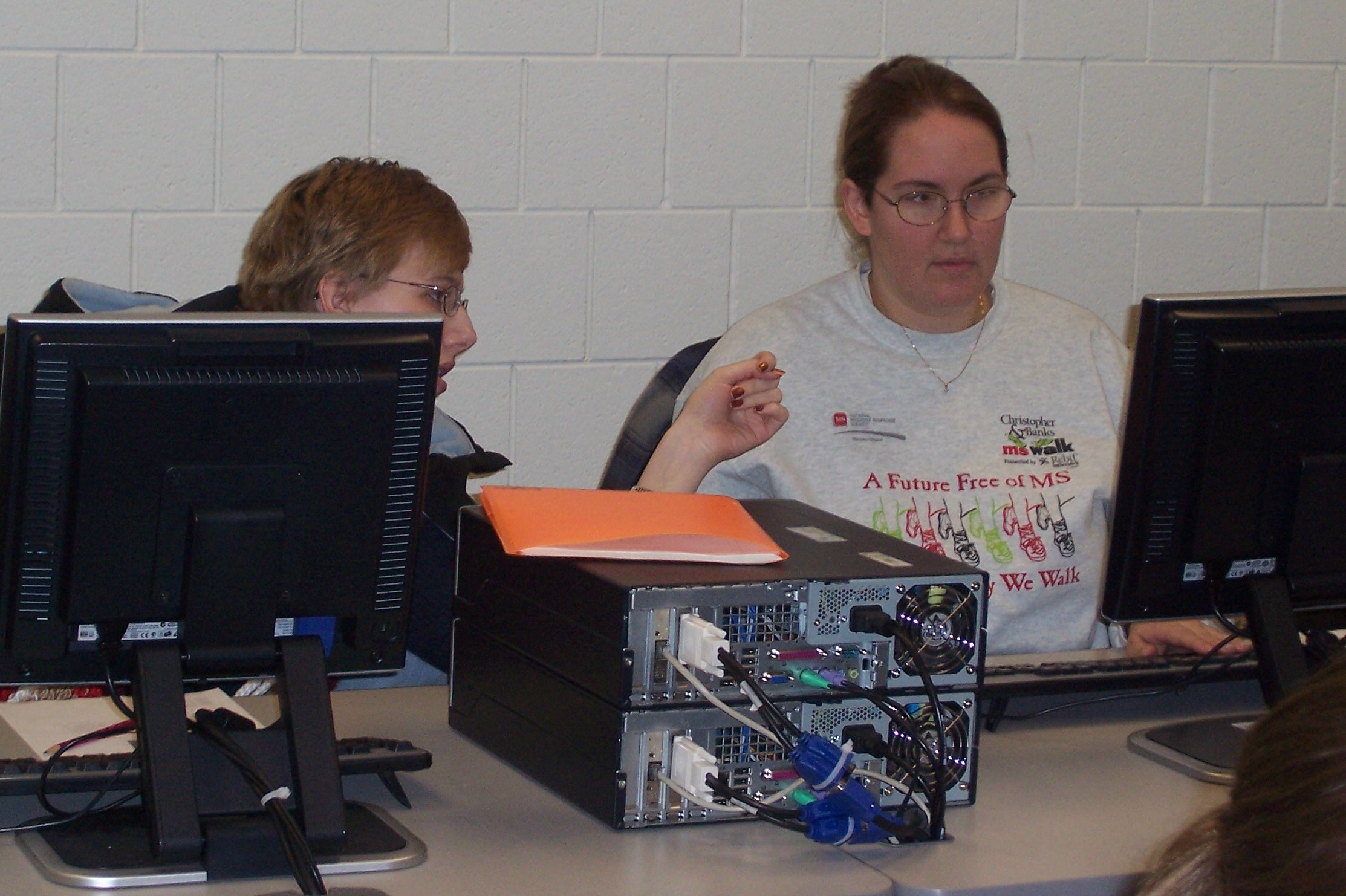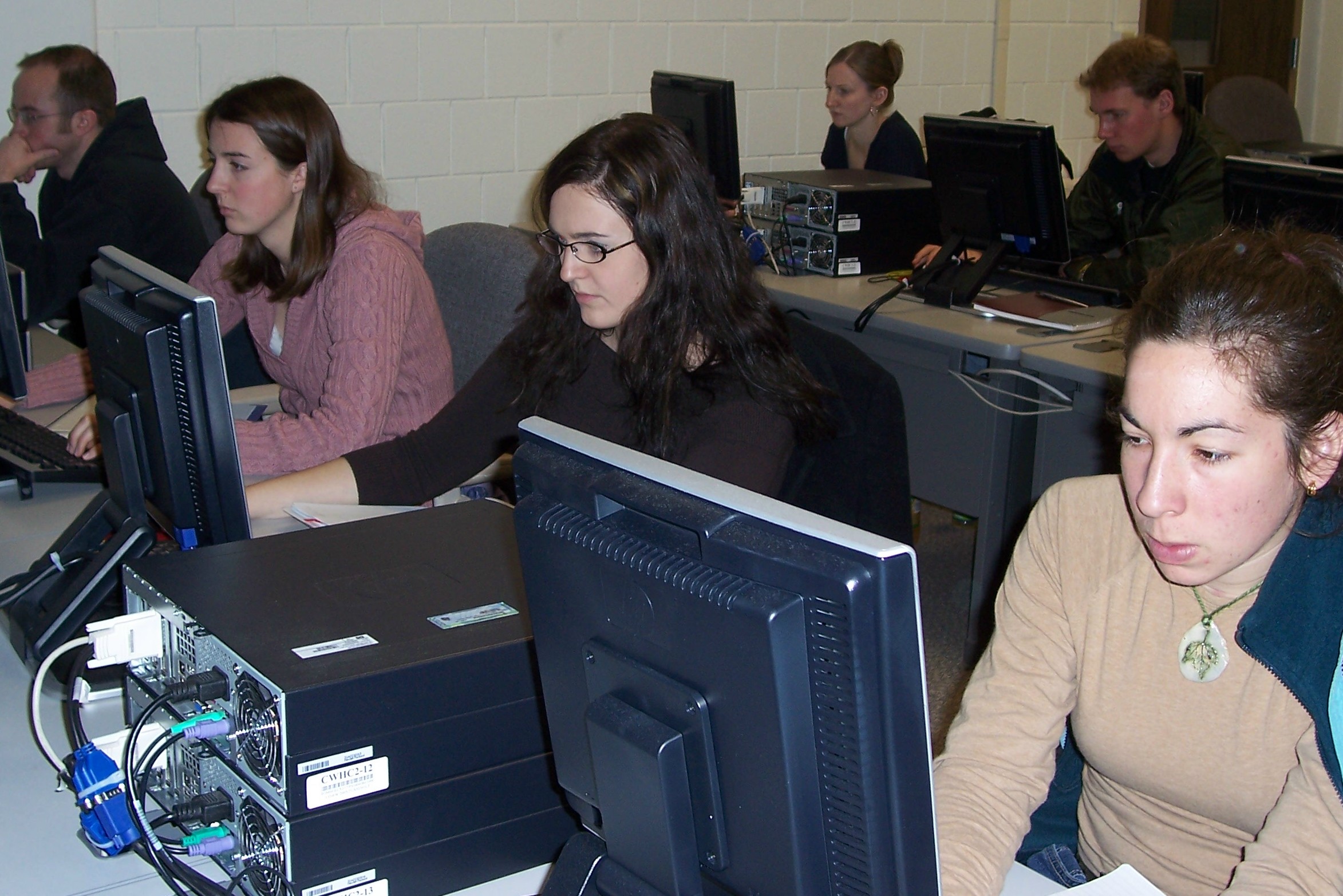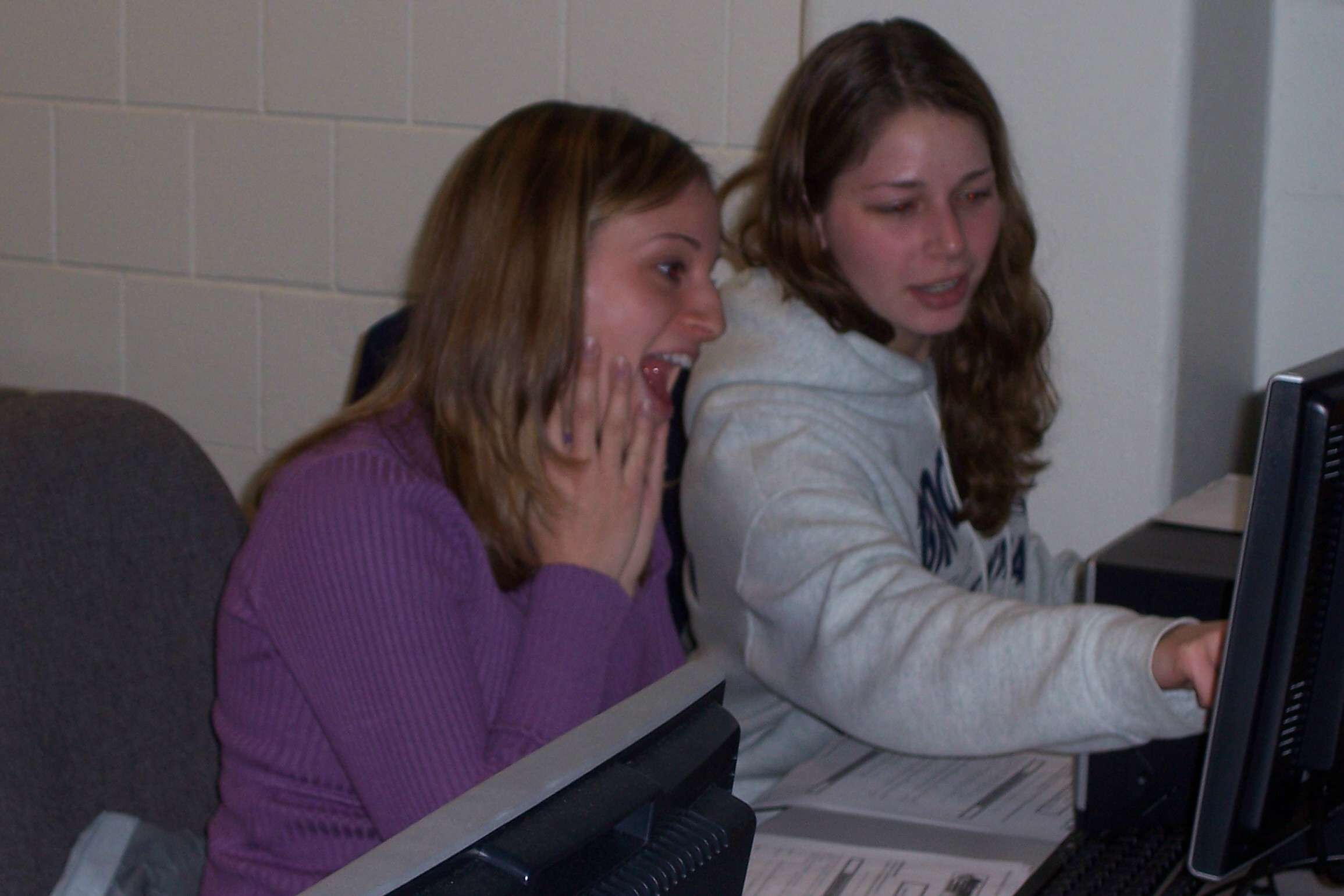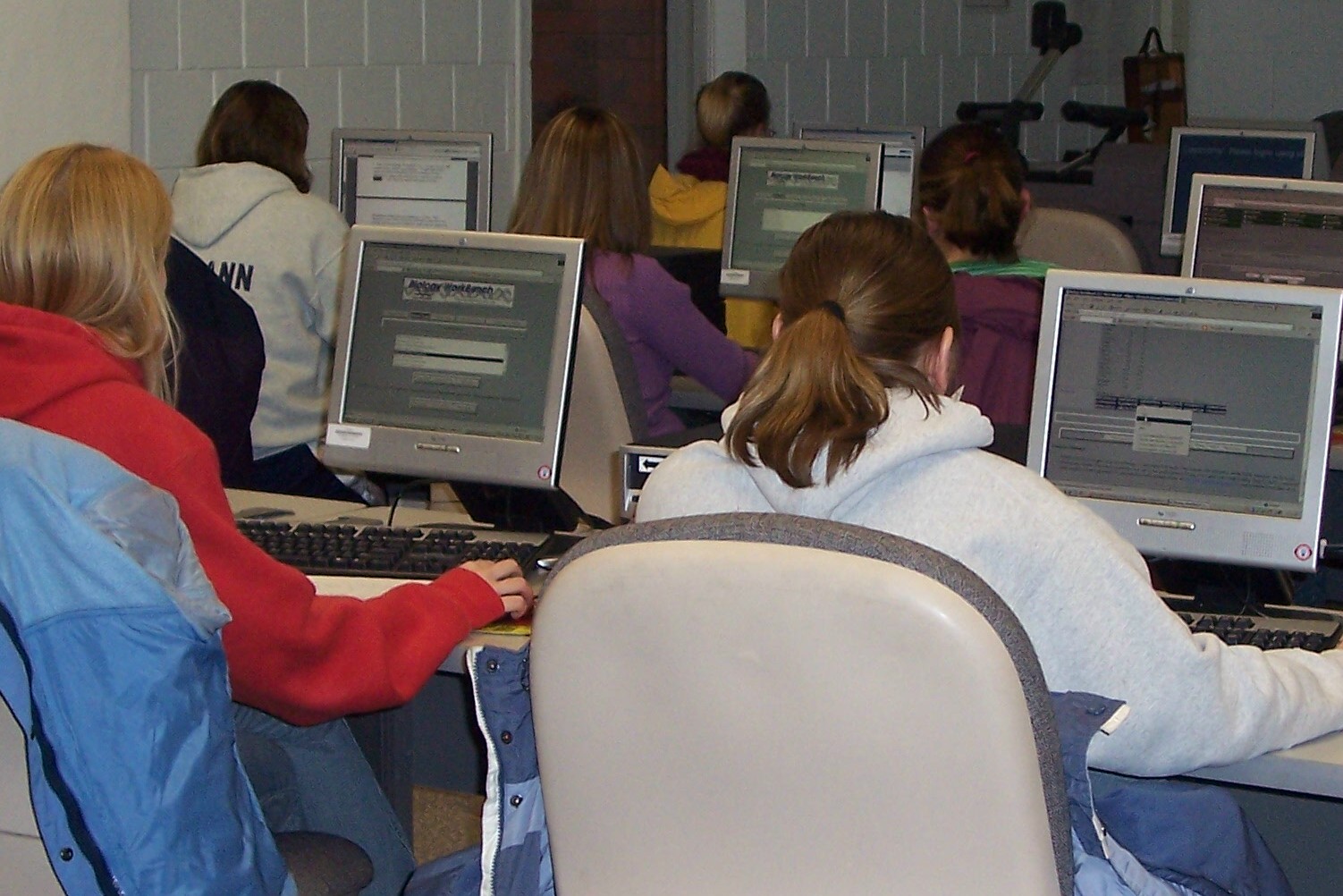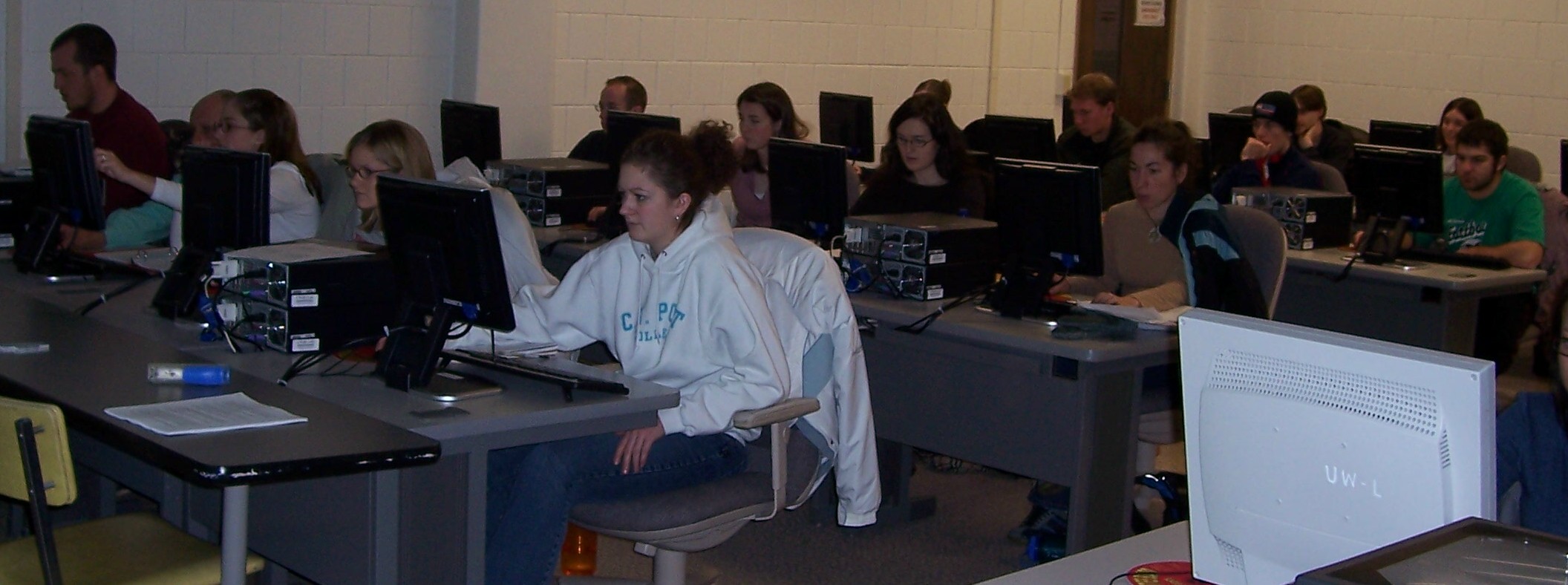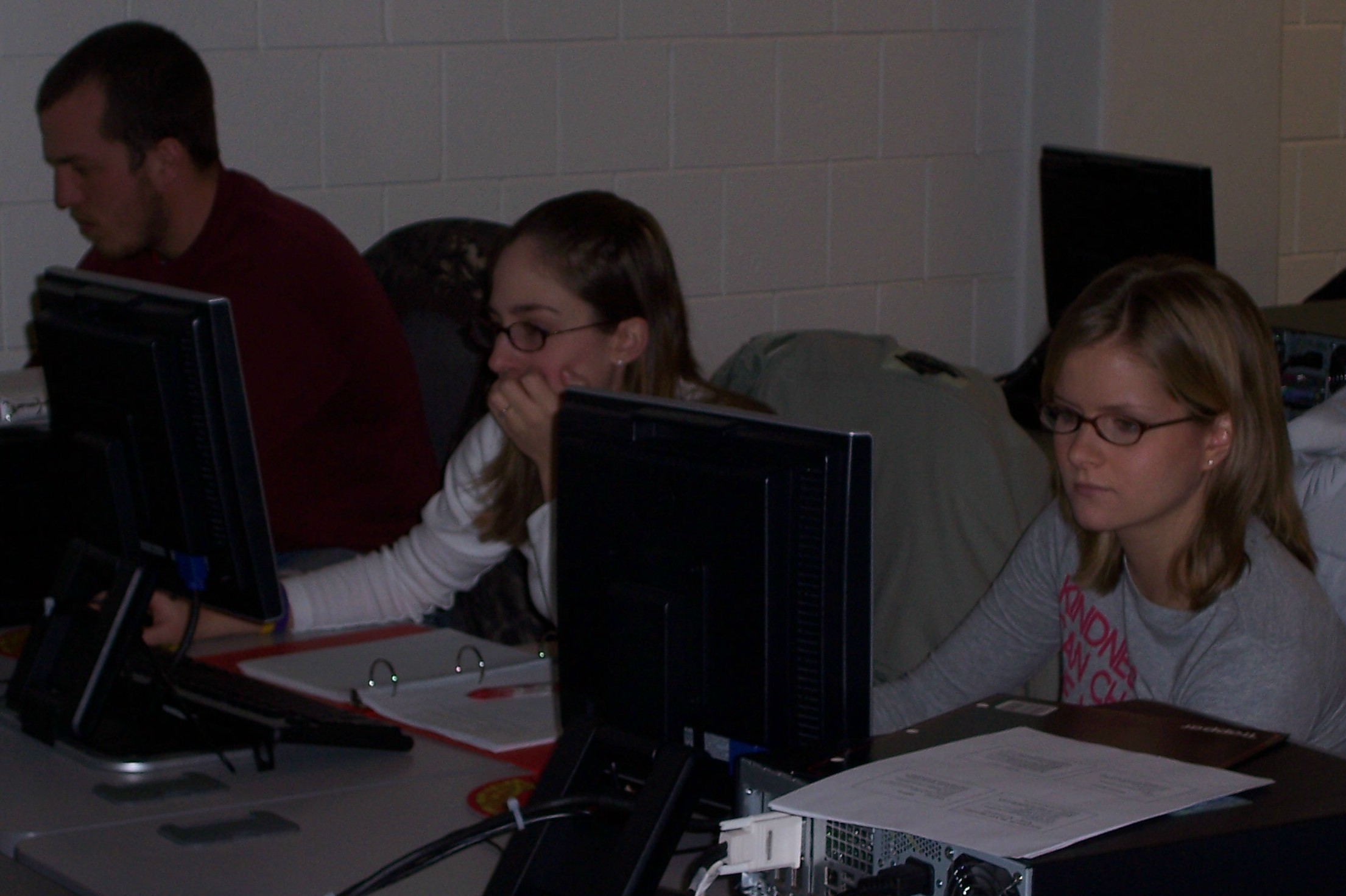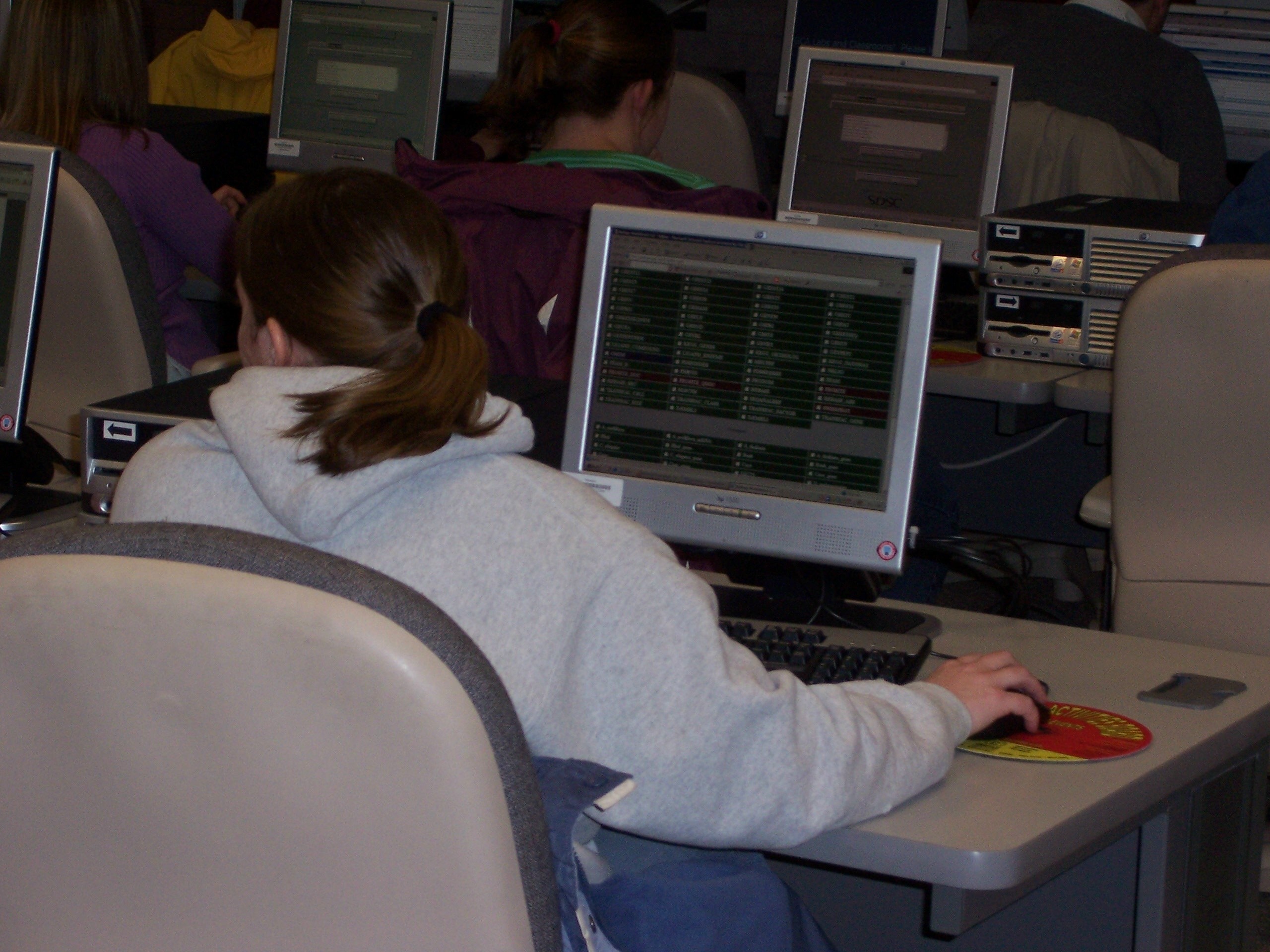|
Current Level |
|||||||||||||
|
|
|||||||||||||
|
Previous Level |
|||||||||||||
|
|
|||||||||||||
|
|
|
Bioinformatics
BIO/MIC 440/540 The term bioinformatics is often used as a synonym for "biocomputing" or "computational biology". This field uses computers to study living systems and applies computer science and information technology to biological problems. Much of the data analyzed in bioinformatics is molecular in nature, i.e. the sequence of nucleotides in DNA or RNA, or the amino acids in a protein. Being able to manipulate and study this information is the basis for the current revolution in Biotechnology. Students with a strong background in bioinformatics will have many job opportunities in both corporate and academic settings. This course also gives students an opportunity to see the relationships between biology, microbiology, chemistry and computer science. J-term Syllabus Spring Syllabus Grading
Sites we will use often in class
Format: 2 Credits.
4-1/2 hours per day, Jan 4-15.
15 Wing
Instructors: Unit 1-2 Bonnie Bratina (Microbiology) bbratina@uwlax.edu 785-6994 Unit 3
Mike Abler (Biology)
mabler@uwlax.edu
785- Unit 4
Anton Sanderfoot
UNIT 1 Introduction to Databases and Alignments
|
||||||||||||||||||||||||||||||||||||||||||||||
|
Format: 2 Credits.
2:15- 5:20, Tuesday and Thursday, 15 Wing (7-week
course)
Instructors:
Unit 1-2
Bonnie Jo Bratina (Microbiology)
bbratina@uwlax.edu
785-6994
Unit 3-4
Anton Sanderfoot
(Biology)
asanderfoot@uwlax.edu
785-8240
Grading:
Quizzes:
95
92-100% = A
Unit projects:
140
88-92% = AB
Lab exercises, cumulative points
20
81-88% = B
Total:
255
77-81% = BC
70-77% = C
60-69% = D
Any student with a documented disability (e.g.
physical, psychiatric, vision or hearing, etc.) who needs to arrange reasonable
accommodations must contact the instructor and the Disability Resource Services
Office (165 Murphy Library, 785-6900) at the beginning of the semester.
|
||||||||||||||||||||||||||||||||||||||||||||||
|
|
|

